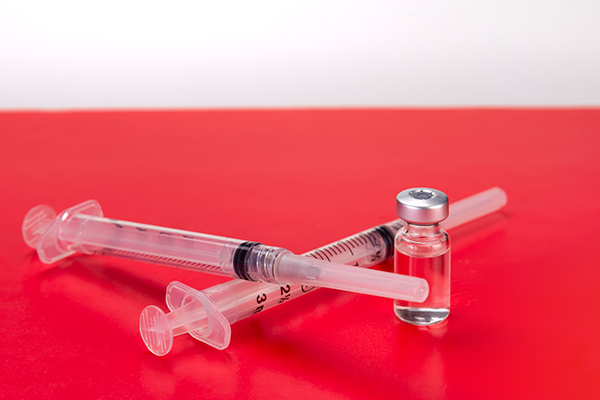Sublocade is a prescription medication used to help men and women over 18 overcome the symptoms associated with an opioid abuse disorder. Sublocade is often used as part of a more comprehensive treatment program, including 12-step program involvement and intensive behavioral therapy. This specific medication is part of a drug class called analgesics. It is a partial opioid agonist made from buprenorphine.
Does Sublocade Help With Opioid Abuse?
This medication was designed to help alleviate the more severe symptoms of opioid withdrawal while eliminating psychological drug cravings. Some opioid addictions that Sublocade can treat include prescription painkillers like hydrocodone and oxycodone, illegal opioids like heroin, and synthetic opioids like fentanyl. This medication is given intravenously and in the form of an injection, and it is directly administered into the stomach once a month in a designated clinic. Sublocade is not an ideal treatment for everyone, though it has been proven effective at reducing rates of opioid use and dependence. Connect with a local addiction treatment center to determine the right method of addiction treatment for you today.
Sublocade and Withdrawal Symptoms?
It is important to note that Sublocade is not given at the onset of withdrawal symptoms. If a person has been struggling with an opioid abuse disorder, they will be given a different form of buprenorphine during the initial stages of withdrawal. This form of buprenorphine will be taken orally – placed under the tongue or inside the cheek and kept in the mouth until it dissolves completely. After seven days, the prescribing physician might decide that it is a good idea to make the switch from oral buprenorphine to the injectable version. Once the once-monthly Sublocade injections begin, the person will enter into a therapeutic program of recovery.
Is Sublocade Right for Me?
Sublocade is not an ideal treatment for everyone, though it has been proven effective at reducing rates of opioid use and dependence. A clinical study showed that roughly 30 percent of men and women who took the medication over 24 weeks combined with intensive behavioral therapy did not engage in opioid abuse for at least 80 percent of the entire length of the study. However, it is important to keep in mind that while this medication can be effective in helping to prevent the more serious symptoms associated with acute and post-acute opioid withdrawal, it is technically still a (schedule III) controlled substance.
Sublocade Develop Dependence?
This means that it does have a high potential for misuse. If a person takes this medication other than a medical professional prescribed it, they are likely to develop a physical and psychological dependence over time. Because of this, this medication should only be utilized in the case of very severe opioid abuse disorders. If you have been struggling with a mild or moderate opioid abuse disorder, Sublocade might not be right for you. To learn more about the medication or to learn more about the risks involved in taking it, feel free to reach out to Evoke Wellness today.
Potential Side Effects of Taking Sublocade
Some potential side effects that might be experienced by a person taking Sublocade include:
- Increased heart rate and blood pressure
- The development of certain psychiatric symptoms, like increased anxiety or depressed mood (which can sometimes lead to suicidal ideation)
- The development of physical and psychological dependence (if the medication is taken other than it was prescribed by a medical professional)
- Severe mood swings, marked by irritability and aggression or agitation
- An inability to focus or pay attention for extended periods
- Insomnia and other sleep-related issues, which could include nightmares
Evoke Wellness and Medication-Assisted Treatment (MAT)
At Evoke Wellness, we believe that Medication-Assisted Treatment(MAT) can sometimes be a beneficial part of a comprehensive treatment program that focuses on individual and group therapy, holistic treatment approaches, and the 12-step approach; we also believe that MAT is never a standalone treatment option – and that it should only be utilized short-term. If you would like to learn more about our recovery program and how we incorporate MAT (and the types of medications that we commonly prescribe), contact us today. All calls are free and completely confidential.


